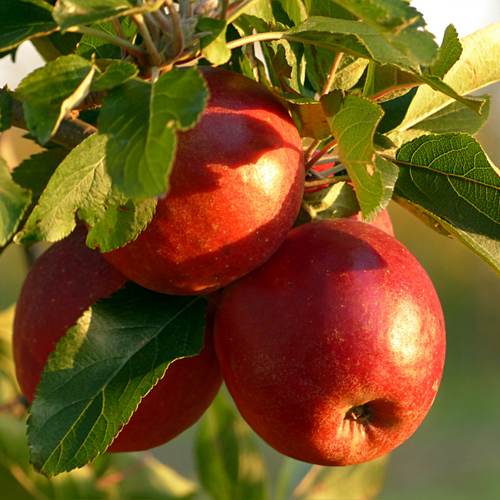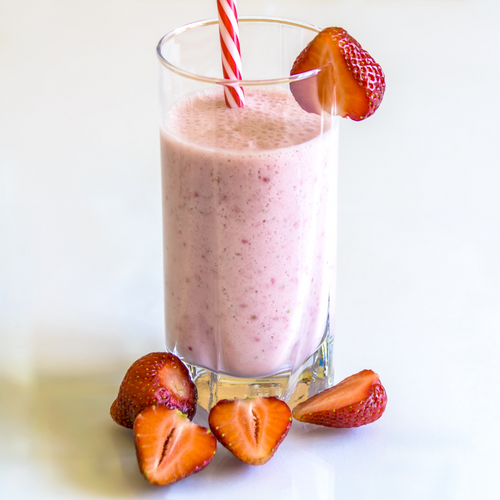The effect of sugar on the stomach
The gut microbiota, or the community of microorganisms that reside in our digestive tract, plays a vital role in digestion, immunity, and even regulating our mood. Several studies have shown that excessive sugar consumption can disrupt this delicate ecosystem. Indeed, diets high in sugar can encourage the growth of pathogenic intestinal bacteria, while reducing the diversity of beneficial species. This imbalance can lead to chronic inflammation that is associated with many diseases, including inflammatory bowel disease (IBD) and irritable bowel syndrome (IBS) [1].
The effect of sugar on the skin
The skin microbiota, the community of microorganisms living on the surface of our skin, plays a key role. Unfortunately, the effect of sugar on the skin can be two-fold: On the one hand, excessive sugar consumption can contribute to skin problems such as acne and eczema. On the other hand, sugars can also affect the skin microbiota directly.
Indeed, one study showed that diets high in sugar can encourage the growth of skin bacteria associated with skin inflammation, which can worsen existing skin problems [2]. Additionally, high blood sugar, which is the result of excessive sugar consumption, can also contribute to increased sebum production, which can clog pores and promote acne [3]. But the sugar doesn't stop there. It also has osmotic properties, meaning it has the ability to draw water out of skin cells. This action can contribute to skin dehydration, leading to moisture loss and dryness. The result is duller skin and more pronounced wrinkles, even though we often try to hide these signs with creams. But the first step to having glowing skin on the outside starts with taking care of yourself from the inside.
Possible Solutions
To maintain a healthy intestinal and skin microbiota, it is important to reduce the consumption of added sugars. We advise you to limit your sugar consumption to less than 10% of total caloric intake [4]. This can be accomplished by avoiding sugary drinks (sodas, fruit juices, smoothies), candies, industrial cakes, ultra-processed foods and by favoring a diet rich in fiber, vegetables and fresh fruits.
Additionally, the use of probiotics and prebiotics can help restore the balance of the gut microbiota. Studies suggest that these supplements can help reduce intestinal inflammation and restore microbial diversity [5] alongside a balanced diet.
What if there was a real alternative to sugar?
What if we told you that you don't need to give up sweet taste to take care of your microbiota and your health? This is what Yacon&Co Yacon syrup promises! It is a healthier alternative to sugar that is gaining popularity due to its unique properties. It is extracted from the roots of Yacon, a plant native to South America. This syrup is naturally sweet with a very low glycemic index, meaning it does not cause rapid spikes in blood sugar that typically lead to weight gain. Additionally, Yacon syrup is rich in prebiotic fiber which can promote the growth of beneficial bacteria in the gut microbiota. This syrup can be used in drinks, sauces, vinaigrettes and desserts, offering a very interesting alternative to refined sugar while maintaining that sweet and pleasant touch that we love so much. So what are you waiting for to discover it right here !
References :
- Wu, H., Esteve, E., Tremaroli, V., Khan, MT, Caesar, R., Mannerås-Holm, L., ... & Bäckhed, F. (2017). Metformin alters the gut microbiome of individuals with treatment-naive type 2 diabetes, contributing to the therapeutic effects of the drug. Nature Medicine , 23(7), 850-858.
- Juge, R., Rouaud-Tinguely, P., & Breugnot, J. (2017). Sugary food regulates the composition of cutaneous microbiota. The Journal of Investigative Dermatology , 137(5), S64.
- Melnik, B.C. (2012). Diet in acne: further evidence for the role of nutrient signaling in acne pathogenesis. Acta Dermato-Venereologica , 92(3), 228-231.
- World Health Organization (WHO). (2015). Sugars intake for adults and children: Guideline. World Health Organization.
- Marchesi, JR, Adams, DH, Fava, F., Hermes, GDA, Hirschfield, GM, Hold, G., ... & Winstanley, C. (2016). The gut microbiota and host health: a new clinical frontier. Gut , 65(2), 330-339.











